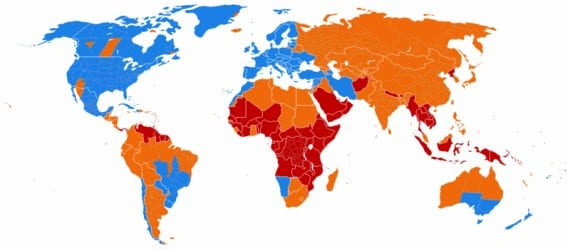Originally published on Cleantechnica.
By Joshua S. Hill.
It is quite possible that daylight saving time is one of the most unambiguously contentious issues of our time. I’m not saying it’s the only one, but given the sheer weight of legislation, vials of ink, hours of discussion dedicated to the issue of daylight savings, whether we should continue it, or whether it should be scrapped, I would suggest that it is one of the most hotly contested issues in many nations.

For those in my locale — Southeastern Australia — we are set to move our clocks backward on the 6th of April. For those in the United States your set to put your clock forward on March 9, while Londoners are looking to March 30.
But why all this fuss about what time it should be? And specifically to readers at CleanTechnica, is it at all energy-efficient?
Simply put, it’s not — at least, that’s what Michael Downing says, a lecturer in English and author of the book Spring Forward: The Annual Madness of Daylight Saving Time.
Current DST usage worldwide. Regions in blue currently use DST, orange have scrapped DST, and regions in red have never used DST.
Image Credit: Paul Eggert under a Wikimedia Creative Commons Attribution-Share Alike 3.0 Unported license.
According to Downing — as expressed in an article on the Tufts University website — while some studies suggest that there are small reductions in electricity usage, the most comprehensive studies have shown that there is in fact an overall energy consumption increase of about 1% to 4%.
“The barbeque grill and charcoal industries say they gain $200 million in sales with an extra month of daylight saving—and they were among the biggest lobbies in favor of extending DST from six to seven months in 1986,” he says.
So there’s benefits for some industries, especially if you are selling ice-cream down at the beach in summer, but on the whole, one must wonder why we are still adhering to such an archaic mindset — especially in light of it’s relative uselessness in terms of energy efficiency, not to mention the long-standing issues suffered by occupations tied to the rise and fall of the sun, rather than the hands on a clockface.
As with many issues the energy industry faces at the moment — specifically those within the industry looking to create a cleaner and more efficient tomorrow — the big enemies is the lobbies. With so much power and history behind them, lobbies of all sorts are winning the war against dismissing daylight savings.
So let’s hear it: Do we need to keep daylight savings around? Or are its negative effects enough to drop it entirely?









